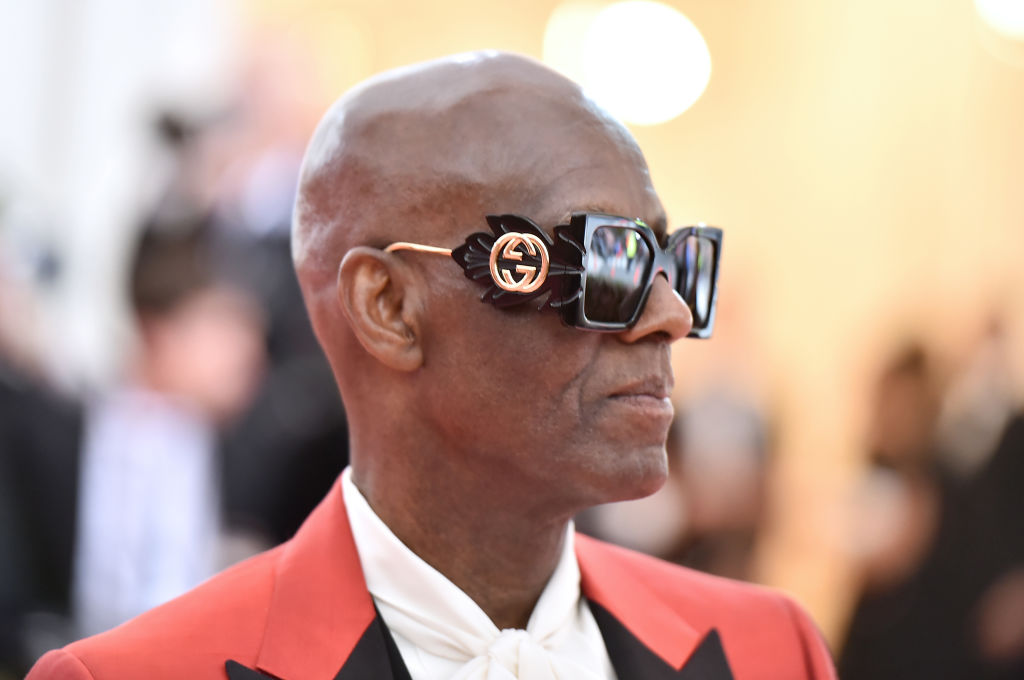
Source: Theo Wargo / Getty
In Black culture, being dressed to the nines is of the utmost importance, as it helps build one’s confidence and is a direct reflection of their personality. Our fixation on fashion has trickled down throughout the years and is currently informed by Hip-Hop, which has emerged as a breeding ground for new styles and trends. Whether it’s getting fresh, being fly or being dripped, all have one thing in common, which is looking the part of someone of social stature. From clothing that captures the rugged vibe and terrain of the streets, to more elegant and luxurious items, the breadth of looks that hip hop has produced over the years is wide-ranging.
A countless number of individuals have placed their stamp on the hip hop fashion, however, there are a handful of taste-makers that helped bridge the gap between the two worlds while cultivating an entrepreneurial spirit that has proved contagious.
In honor of Black Music Month, CASSIUS looks back at ten Black fashion designers that defined the hip hop generation.
1. Dapper Dan
When listing the pioneers of high-end street-wear and hip hop fashion, Dapper Dan’s name is at the top of the list. Hailing from Harlem, New York, Dapper Dan took up the garment trade in the ’70s, but faced discrimination from various companies who refused to do business with the aspiring clothier. Taking matters into his own hands, Dan taught himself how to design from scratch, using bootleg fabric from luxury brands like Gucci, Louis Vuitton, and MCM. Opening his flagship store, Dapper Dan’s Boutique, in 1982, Dan would quickly become the go-to tailor for New York City’s biggest hustlers and neighborhood superstars, most notably Alberto “Alpo” Martinez. That street cred would lead to an array of musicians and athletes to seek out his services, including Mike Tyson, LL Cool J, Eric B & Rakim, KRS-One, The Fat Boys, and Bobby Brown. However, after various fashion houses took legal action against Dan, his boutique was closed in 1992, marking the end of an era. An influential figure in fashion and hip hop, calls for Dan to get his just due resulted in Gucci partnering up with him for a menswear line in 2017.
2. The Shirt Kings
During the late ’80s, no wardrobe was complete without a custom design from The Shirt Kings, who helped document the effect that hip hop and the crack epidemic on New York City through their clothing. Based out of Queens, New York, The Shirt Kings was headed by a trio of designers, Edwin “Phade” Sacasa, Rafael “Kasheme” Avery, and Clyde “Nike” Harewood, who decided to combine their talents after meeting one another at Manhattan High School of Art & Design. Launching their business in 1986, The Shirt Kings turned heads by airbrushing various cartoon characters and depicting them in a light that reflected the realism of the streets. Servicing the biggest rap artists and neighborhood superstars of the ’80s and early ’90s, The Shirt Kings – who were located in a shopping mall dubbed the Coliseum – exploded in popularity, resulting in the trio becoming celebrities themselves. Despite never becoming a full-on brand, The Shirt Kings are remembered as originators in the street-wear sector and their influence can be traced to numerous fashion designers of today.
3. Carl Jones
https://www.instagram.com/p/BvSlebcHBiT
In 1989, fashion designer Carl Jones launched Cross Colours, a clothing line targeting African-American youth that promoted sociopolitical messages that resonated with the climate within the hip hop community at the time. Based out of Los Angeles, Cross Colours was a massive success, infiltrating urban culture on all levels, whether it be through music, television or film. Although its run at the top of hip hop fashion was relatively short, Carl Jones’ contributions helped inspire a generation of Black fashion designers to follow his lead and cultivate their own companies in an attempt to represent the style, swagger and flavor of their own communities.
4. Karl Kani
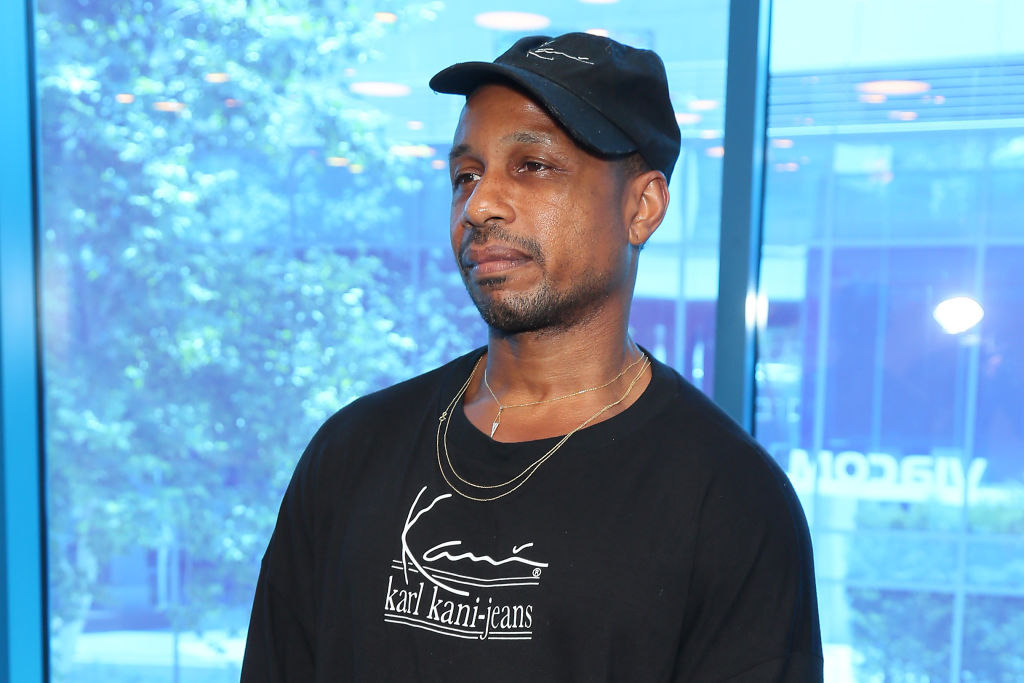
Source: Leon Bennett / Getty
One of the first Black designers of the hip hop era to breakout with their own clothing line was Karl Kani, whose signature baggy style of jeans served as the template for street-wear. Born in Costa Rica and raised in the East New York section of Brooklyn, Kani got his start selling clothes in his neighborhood before venturing to Los Angeles to open a clothing store on Crenshaw, which proved to be unsuccessful. Returning to the drawing board, Kani had the unconventional idea of paying a friend to hold up a sign with the brand’s logo during a taping of The Today Show to increase sales. The tactic worked and led to a partnership between Cross Colours founder Carl Jones, which helped put Kani on the map. Throughout the ’90s, a number of rap artists would sport his clothing in music videos, advertisements and elsewhere, including Tupac Shakur, The Notorious B.I.G., Nas, Diddy and many others. While Karl Kani’s popularity dwindled with the influx of additional clothing brands catering to rap fans, Kani’s line will forever be credited with helping the lay the foundation for its predecessors.
5. April Walker
When one of your claims to fame is allowing a future rap legend by the name of Christopher Wallace to put your gear on layaway, your cred in the realm of hip hop fashion is solidified. Just ask April Walker, the founder of Walker Wear, which was launched in 1991 out of her brick-and-mortar boutique in Brooklyn. Initially gleaning inspiration from Harlem style magnate Dapper Dan, Walker opened her own storefront, Fashion in Effect, during the late ’80s, ultimately launching Walker Wear, which became one of the hottest brands on the street. With a clientele including Mike Tyson, Shaggy, Milk of Audio Two and other urban superstars, Walker was among the first women to put her hat into the ring and place her stamp on the street-wear industry.
6. Daymond John
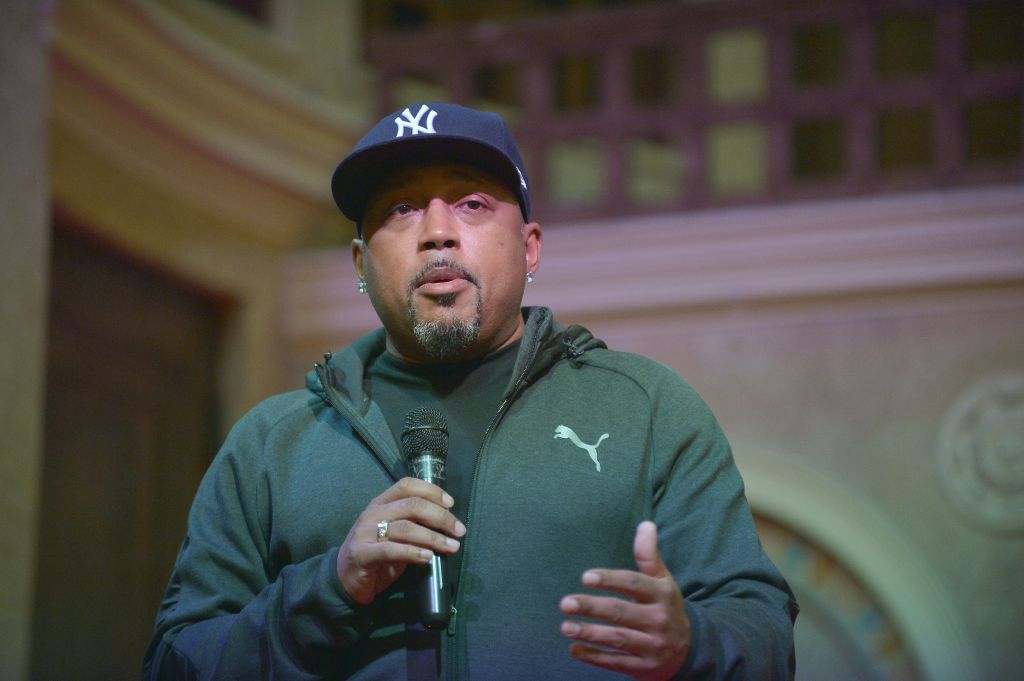
Source: Johnny Louis / Getty
Prior to becoming a household name as an investor on the popular ABC reality television series Shark Tank, Daymond John spearheaded one of the most iconic and pivotal clothing brands in hip hop history. Born in Brooklyn, New York and raised in Queens, John started his FUBU clothing line in his mother’s home, jump-starting the line with screen-printed T-shirts before sewing the logo onto hockey jerseys, sweatshirts, and other articles of clothing. Raising the visibility of the brand by giving out clothing to various rap artists to sport in their music videos, FUBU caught full steam after LL Cool J notoriously wore a FUBU cap in a GAP commercial. Striking a deal with Samsung Textiles, FUBU went national, dominating the market during the late ’90s and early aughts to the tune of $6 Billion in global sales. While FUBU’s popularity would wane in subsequent years as John branched off to pursue other endeavors, it’s legacy as one of the iconic brands in hip hop fashion is indisputable.
7. Diddy
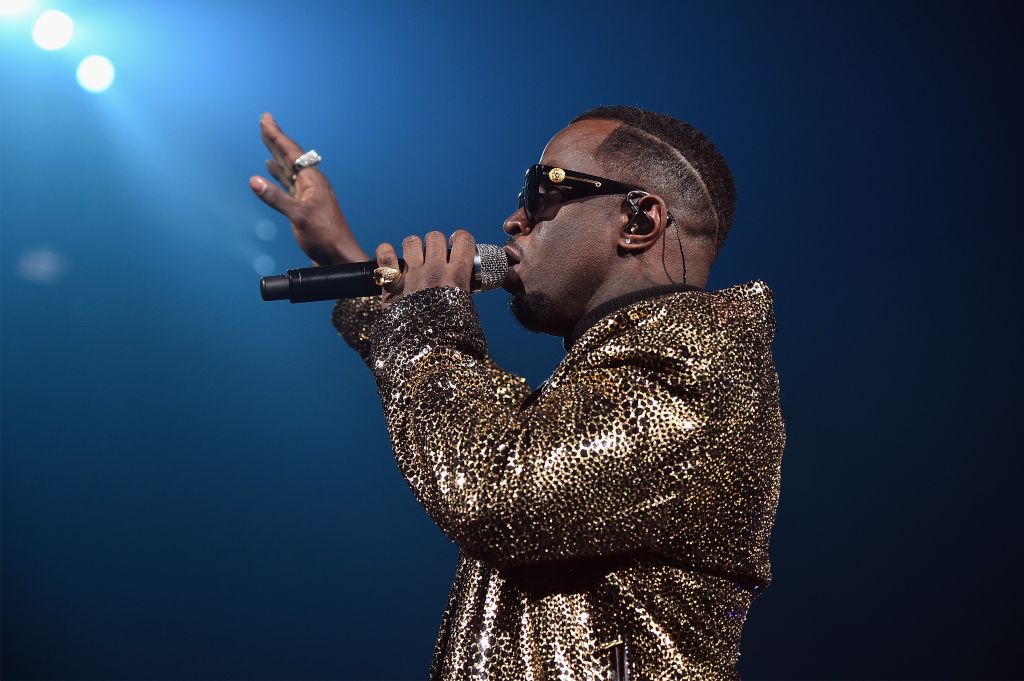
Source: Kevin Mazur / Getty
As one of the foremost style icons of the ’90s, it was only right that Sean “Diddy” Combs jump try his hand at designing his own clothing line. In 1998, Diddy – then known as Puff Daddy – launched Sean John, which debuted with a men’s sportswear collection for the spring 1999 season. A staple within the hip hop community, Sean John earned prestigious accolades and recognition from the Council of Fashion Designers of America, including the CFDA Men’s Designer of the Year award in 2004, the first Black fashion designer to receive the honor. In 2010, Sean John entered an agreement with Macy’s allowing the department store to be the sole distributor of Sean John sportswear, and continues to flourish as lifestyle brand as it celebrates its 20th anniversary.
8. Donwan Harrell
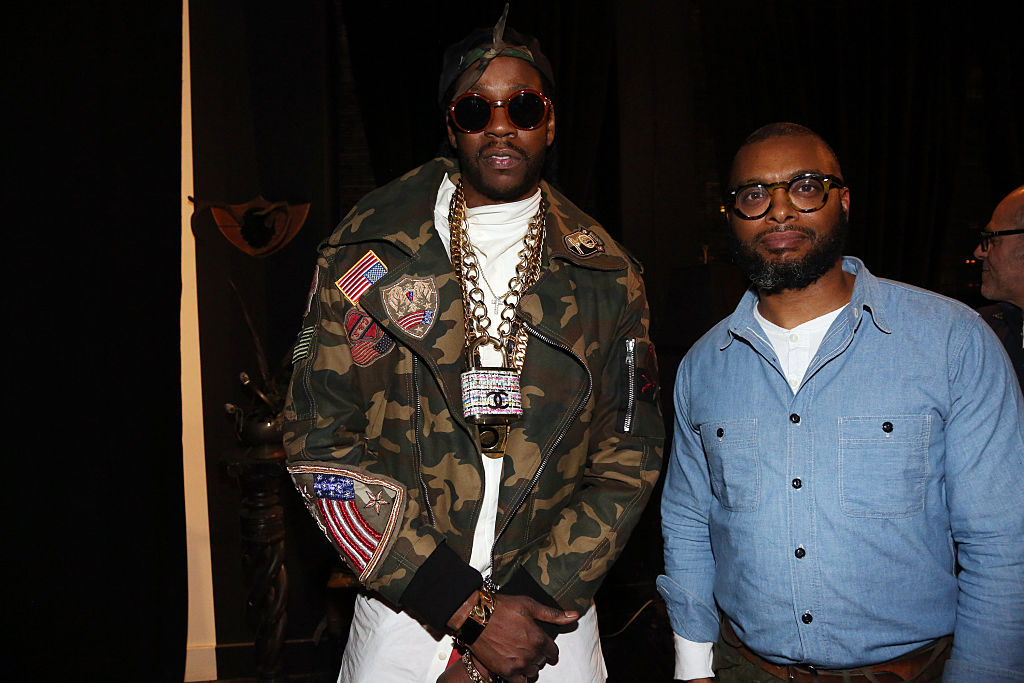
Source: Johnny Nunez / Getty
One designer that’s stayed ahead of the curve while ushering street-wear and hip hop fashion into the future is Donwan Harrell, whose career has included stints working alongside some of the biggest brands on the globe. A native of Virginia, after graduating from Virginia Commonwealth University with a B.F.A. in Fashion/Apparel Design, Harrell worked with Nike as Senior Designer/Global Team Sports Director during the ’90s, where headed the OTS category in Asia. In 1999, Harrell and his brother, Emmett, founded their own clothing line, Akademiks, which quickly became one of the hottest brands catering to urban consumers on the market. However, during the mid aughts, Harrell departed from Akademiks to jump-start another company, delving into the world of Japanese denim as the founder, co-owner and creative director PRPS. In February 2018, Harrell sold his shares in PRPS and abruptly left the company and is currently “The Creator” at ARTMEETCHAOS, where he works alongside his wife and former head of marketing at PRPS, Jarayra Harrell.
9. Kimora Lee Simmons
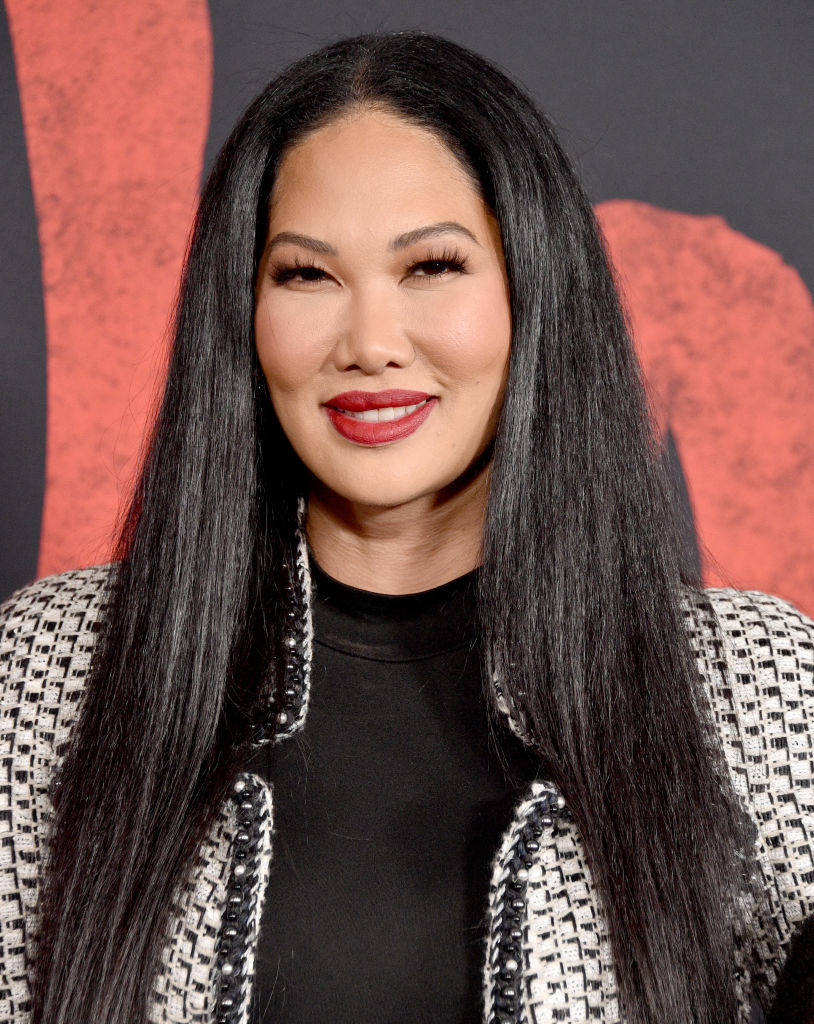
Source: Gregg DeGuire / Getty
A majority of clothing lines in the urban sector were largely catered to men before Kimora Lee Simmons’ arrival on the scene. A former model for fashion giants like Chanel, Fendi, Valentino, and Yves Saint Laurent, in 1999, Simmons’ helped launch Baby Phat, an offshoot of her former husband and mogul Russell Simmons’ Phat Farm Industries, serving as creative director of the brand. Catering exclusively to women, Baby Phat’s popularity within the hip hop skyrocketed, with the biggest artists of the aughts namedropping the brand and giving it additional cache. Eventually serving as president during her tenure, Simmons’ departed from Baby Phat in 2010 to launch her KLS collection, which is currently available at its flagship Beverly Hills boutique, as well as Bloomingdale’s in the Aventura Mall.
10. Virgil Abloh
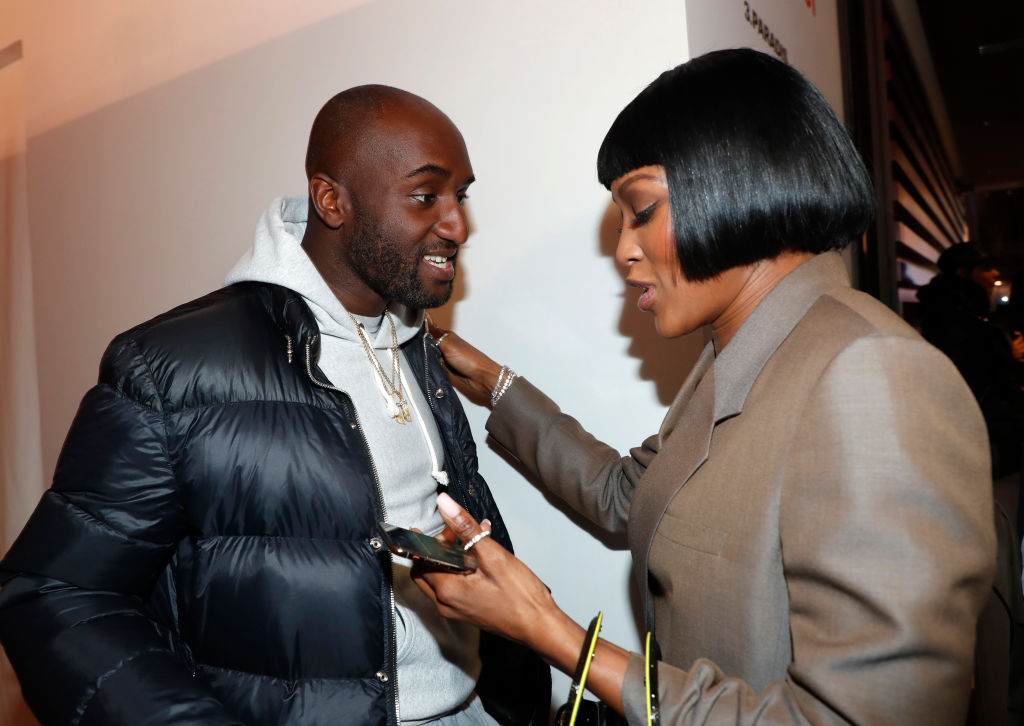
Source: Bertrand Rindoff Petroff / Getty
Over the past decade, few designers have made an impact on the fashion industry comparable to that of Virgil Abloh. After receiving his Master of Architecture from Illinois Institute of Technology, Abloh interned at Fendi, where he worked alongside rapper Kanye West. Sparking a working relationship with one another. In 2010, West appointed Abloh as creative director of DONDA, the rapper’s creative agency, as well as tapping him to serve as artistic director of the Watch the Throne album a year later. Launching his first clothing line, Pyrex Vision, in 2012, Abloh truly set himself apart with the inception of Off-White, a high-end street-wear brand that became immensely popular among fashion enthusiasts. Following collaborations with Nike and IKEA, in 2018, Abloh was named artistic director of Louis Vuitton’s menswear, the first designer of African descent to hold the position, a testament to his stature within the world of fashion.
















